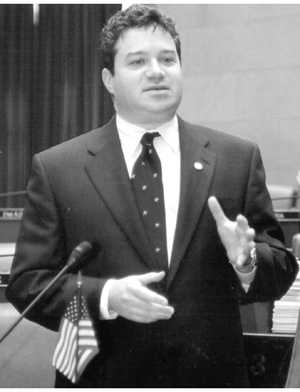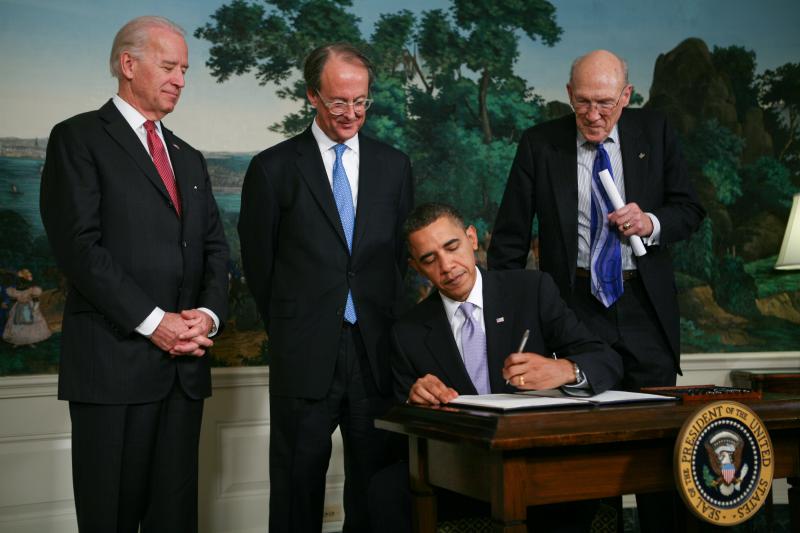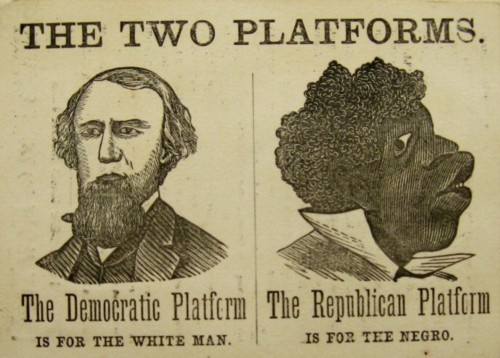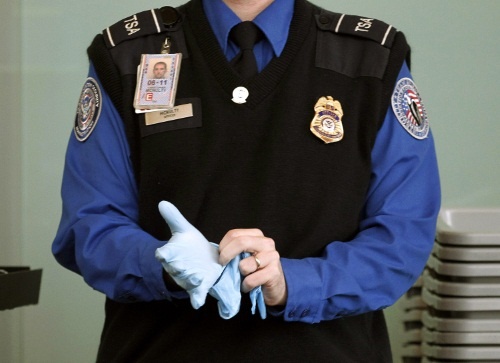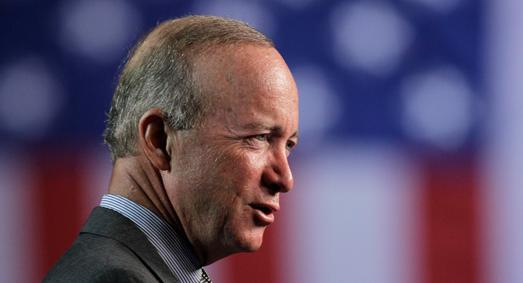
Indiana Governor Mitch Daniels reportedly blew away conservative conference CPAC yesterday with this speech. I can understand why after reading it. (Audio of the speech available here.) There are glimmers of greatness in here. The 2012 election may have just gotten a lot more interesting…
Indiana Governor Mitch Daniels
February 11, 2011 Remarks
Ronald Reagan Centennial Dinner
Conservative Political Action Conference
Washington, D.C.
Phyllis, Schlafly, David Keene, George Will, good friends, thank you for the enormous privilege of this podium. Even a casual observer of American public life knows how many great ideas have been born here, how many important debates joined here, how many giants of our democracy appeared on this platform. When David broached the invitation, my first reaction was one I often have: “Who cancelled?” But first choice or fifteenth, the honor, and the responsibility to do the occasion justice, is the same. I am seized with the sentiment best expressed by Hizzoner, the original Mayor Richard Daley, who once proclaimed a similar honor the “pinochle of success.”
We are all grateful to our co-sponsors, the Reagan Foundation and the Reagan Ranch. How fitting that we convene under their auspices, as we close this first week of the centennial. Those of us who served President Reagan were taught to show constant respect for the presidency and whoever occupies it. But, among us alums, the term “the President” tends to connote just one of those forty-four men, that great man with whom God blessed America one hundred years ago this week.
The prefix in “co-sponsor” is meaningful tonight. It is no state secret that the two foundations have not always been co-operative, or co-llaborative, or co-llegial. So it is a tribute to the stature and diplomacy of David Keene that they have come together to produce so warm a moment as this. I am now converted to the view that yes, the Israeli-Palestinian conflict will be solved. Well done, David; Nobel Peace Prizes have been awarded for far less.
I bring greetings from a place called Indiana. The coastal types present may think of it as a “flyover” state, or one of those “I” states. Perhaps a quick anthropological summary would help.
We Hoosiers hold to some quaint notions. Some might say we “cling” to them, though not out of fear or ignorance. We believe in paying our bills. We have kept our state in the black throughout the recent unpleasantness, while cutting rather than raising taxes, by practicing an old tribal ritual – we spend less money than we take in.
We believe it wrong ever to take a dollar from a free citizen without a very necessary public purpose, because each such taking diminishes the freedom to spend that dollar as its owner would prefer. When we do find it necessary, we feel a profound duty to use that dollar as carefully and effectively as possible, else we should never have taken it at all.
Before our General Assembly now is my proposal for an automatic refund of tax dollars beyond a specified level of state reserves. We say that anytime budgets are balanced and an ample savings account has been set aside, government should just stop collecting taxes. Better to leave that money in the pockets of those who earned it, than to let it burn a hole, as it always does, in the pockets of government.
We believe that government works for the benefit of private life, and not the other way around. We see government’s mission as fostering and enabling the important realms – our businesses, service clubs, Little Leagues, churches – to flourish. Our first thought is always for those on life’s first rung, and how we might increase their chances of climbing.
Every day, we work to lower the costs and barriers to free men and women creating wealth for each other. We build roads, and bridges, and new sources of homegrown energy at record rates, in order to have the strongest possible backbone to which people of enterprise can attach their investments and build their dreams. When business leaders ask me what they can do for Indiana, I always reply: “Make money. Go make money. That’s the first act of ‘corporate citizenship.’ If you do that, you’ll have to hire someone else, and you’ll have enough profit to help one of those non-profits we’re so proud of.”
We place our trust in average people. We are confident in their ability to decide wisely for themselves, on the important matters of their lives. So when we cut property taxes, to the lowest level in America, we left flexibility for localities to raise them, but only by securing the permission of their taxpayers, voting in referendum. We designed both our state employee health plans and the one we created for low-income Hoosiers as Health Savings Accounts, and now in the tens of thousands these citizens are proving that they are fully capable of making smart, consumerist choices about their own health care.
We have broadened the right of parents to select the best place for their children’s education to include every public school, traditional or charter, regardless of geography, tuition-free. And before our current legislature adjourns, we intend to become the first state of full and true choice by saying to every low and middle-income Hoosier family, if you think a non-government school is the right one for your child, you’re as entitled to that option as any wealthy family; here’s a voucher, go sign up.
Lastly, speaking now for my administration colleagues, we believe in government that is limited but active. Within that narrow sphere of legitimate collective action, we choose to be the initiators of new ideas or, as we have labeled ourselves, the Party of Purpose. In President Reagan’s phrase, “We are the change.” On election nights, we remind each other that victory is not a vindication, it is an instruction, not an endorsement, but an assignment.
The national elections of 2010 carried an instruction. In our nation, in our time, the friends of freedom have an assignment, as great as those of the 1860s, or the 1940s, or the long twilight of the Cold War. As in those days, the American project is menaced by a survival-level threat. We face an enemy, lethal to liberty, and even more implacable than those America has defeated before. We cannot deter it; there is no countervailing danger we can pose. We cannot negotiate with it, any more than with an iceberg or a Great White.
I refer, of course, to the debts our nation has amassed for itself over decades of indulgence. It is the new Red Menace, this time consisting of ink. We can debate its origins endlessly and search for villains on ideological grounds, but the reality is pure arithmetic. No enterprise, small or large, public or private, can remain self-governing, let alone successful, so deeply in hock to others as we are about to be.
Need I illustrate? Surely the consequences, to prosperity, world influence, and personal freedom itself are as clear to this audience as to any one could appear before.
Do I exaggerate? I’d love to be shown that I do. Any who think so please see me in the hallway afterward, and bring your third grade math books.
If a foreign power advanced an army to the border of our land, everyone in this room would drop everything and look for a way to help. We would set aside all other agendas and disputes as secondary, and go to the ramparts until the threat was repelled. That is what those of us here, and every possible ally we can persuade to join us, are now called to do. It is our generational assignment. It is the mission of our era. Forgive the pun when I call it our “raison debt.”
Every conflict has its draft dodgers. There are those who will not enlist with us. Some who can accept, or even welcome, the ballooning of the state, regardless of the cost in dollars, opportunity, or liberty, and the slippage of the United States into a gray parity with the other nations of this earth. Some who sincerely believe that history has devised a leftward ratchet, moving in fits and starts but always in the direction of a more powerful state. The people who coined the smug and infuriating term – have you heard it? – “the Reagan Interruption.”
The task of such people is now a simple one. They need only play good defense. The federal spending commitments now in place will bring about the leviathan state they have always sought. The health care travesty now on the books will engulf private markets and produce a single-payer system or its equivalent, and it won’t take long to happen. Our fiscal ruin and resulting loss of world leadership will, in their eyes, be not a tragic event but a desirable one, delivering the multilateral world of which they’ve dreamed so long.
Fortunately, these folks remain few. They are vastly outnumbered by Americans who sense the presence of the enemy, but are awaiting the call for volunteers, and a credible battle plan for saving our Republic. That call must come from this room, and rooms like it.
But we, too, are relatively few in number, in a nation of 300 million. If freedom’s best friends cannot unify around a realistic, actionable program of fundamental change, one that attracts and persuades a broad majority of our fellow citizens, big change will not come. Or rather, big change will come, of the kind that the skeptics of all centuries have predicted for those naïve societies that believed that government of and by the people could long endure.
We know what the basic elements must be. An affectionate thank you to the major social welfare programs of the last century, but their sunsetting when those currently or soon to be enrolled have passed off the scene. The creation of new Social Security and Medicare compacts with the young people who will pay for their elders and who deserve to have a backstop available to them in their own retirement.
These programs should reserve their funds for those most in need of them. They should be updated to catch up to Americans’ increasing longevity and good health. They should protect benefits against inflation but not overprotect them. Medicare 2.0 should restore to the next generation the dignity of making their own decisions, by delivering its dollars directly to the individual, based on financial and medical need, entrusting and empowering citizens to choose their own insurance and, inevitably, pay for more of their routine care like the discerning, autonomous consumers we know them to be.
Our morbidly obese federal government needs not just behavior modification but bariatric surgery. The perverse presumption that places the burden of proof on the challenger of spending must be inverted, back to the rule that applies elsewhere in life: “Prove to me why we should.”
Lost to history is the fact that, in my OMB assignment, I was the first loud critic of Congressional earmarks. I was also the first to get absolutely nowhere in reducing them: first to rail and first to fail. They are a pernicious practice and should be stopped. But, in the cause of national solvency, they are a trifle. Talking much more about them, or “waste, fraud, and abuse,” trivializes what needs to be done, and misleads our fellow citizens to believe that easy answers are available to us. In this room, we all know how hard the answers are, how much change is required.
And that means nothing, not even the first and most important mission of government, our national defense, can get a free pass. I served in two administrations that practiced and validated the policy of peace through strength. It has served America and the world with irrefutable success. But if our nation goes over a financial Niagara, we won’t have much strength and, eventually, we won’t have peace. We are currently borrowing the entire defense budget from foreign investors. Within a few years, we will be spending more on interest payments than on national security. That is not, as our military friends say, a “robust strategy.”
I personally favor restoring impoundment power to the presidency, at least on an emergency basis. Having had this authority the last six years, and used it shall we say with vigor, I can testify to its effectiveness, and to this finding: You’d be amazed how much government you’ll never miss.
The nation must be summoned to General Quarters in the cause of economic growth. The friends of freedom always favor a growing economy as the wellspring of individual opportunity and a bulwark against a domineering state. But here, doctrinal debates are unnecessary; the arithmetic tells it all. We don’t have a prayer of defeating the Red Threat of our generation without a long boom of almost unprecedented duration. Every other goal, however worthy, must be tested against and often subordinated to actions that spur the faster expansion of the private sector on which all else depends.
A friend of mine attended a recent meeting of the NBA leadership, at which a small-market owner, whom I won’t name but will mention is also a member of the U.S. Senate, made an impassioned plea for more sharing of revenue by the more successful teams. At a coffee break, Mr. Prokhorov, the new Russian owner of the New Jersey Nets, murmured to my friend, “We tried that, you know. It doesn’t work.”
Americans have seen these last two years what doesn’t work. The failure of national economic policy is costing us more than jobs; it has begun to weaken that uniquely American spirit of risk-taking, large ambition, and optimism about the future. We must rally them now to bold departures that rebuild our national morale as well as our material prosperity.
Here, too, the room abounds with experts and good ideas, and the nation will need every one. Just to name three: it’s time we had, in Bill Simon’s words “a tax system that looks like someone designed it on purpose.” And the purpose should be private growth. So lower and flatter, and completely flat is best. Tax compensation but not the savings and investment without which the economy cannot boom.
Second, untie Gulliver. The regulatory rainforest through which our enterprises must hack their way is blighting the future of millions of Americans. Today’s EPA should be renamed the “Employment Prevention Agency.” After a two-year orgy of new regulation, President Obama’s recent executive order was a wonderment, as though the number one producer of rap music had suddenly expressed alarm about obscenity.
In Indiana, where our privatization of a toll road generated billions for reinvestment in infrastructure, we can build in half the time at two-thirds the cost when we use our own money only and are free from the federal rulebook. A moratorium on new regulation is a minimal suggestion; better yet, move at least temporarily to a self-certification regime that lets America build, and expand, and explore now and settle up later in those few instances where someone colors outside the lines.
Finally, treat domestic energy production as the economic necessity it is and the job creator it can be. Drill, and frack, and lease, and license, unleash in every way the jobs potential in the enormous energy resources we have been denying ourselves. And help our fellow citizens to understand that a poorer country will not be a greener country, but its opposite. It is freedom and its fruits that enable the steady progress we have made in preserving and protecting God’s kingdom.
If this strikes you as a project of unusual ambition, given the state of modern politics, you are right. If it strikes you as too bold for our fellow Americans to embrace, I believe you are wrong. Seven years as a practitioner in elective politics tells me that history’s skeptics are wrong. That Americans, in a vast majority, are still a people born for self-governance. They are ready to summon the discipline to pay down our collective debts as they are now paying down their own; to put the future before the present, their children’s interest before their own.
Our proposals will be labeled radical, but this is easy to rebut. Starting a new retirement plan for those below a certain age is something tens of millions of Americans have already been through at work.
Opponents will expect us to be defensive, but they have it backwards. When they call the slightest spending reductions “painful”, we will say “If government spending prevents pain, why are we suffering so much of it?” And “If you want to experience real pain, just stay on the track we are on.” When they attack us for our social welfare reforms, we will say that the true enemies of Social Security and Medicare are those who defend an imploding status quo, and the arithmetic backs us up.
They will attack our program as the way of despair, but we will say no, America’s way forward is brilliant with hope, as soon as we have dealt decisively with the manageable problems before us.
2010 showed that the spirit of liberty and independence is stirring anew, that a growing number of Americans still hear Lincoln’s mystic chords of memory. But their number will have to grow, and do so swiftly. Change of the dimension we need requires a coalition of a dimension no one has recently assembled. And, unless you disbelieve what the arithmetic of disaster is telling us, time is very short.
Here I wish to be very plainspoken: It is up to us to show, specifically, the best way back to greatness, and to argue for it with all the passion of our patriotism. But, should the best way be blocked, while the enemy draws nearer, then someone will need to find the second best way. Or the third, because the nation’s survival requires it.
Purity in martyrdom is for suicide bombers. King Pyrrhus is remembered, but his nation disappeared. Winston Churchill set aside his lifetime loathing of Communism in order to fight World War II. Challenged as a hypocrite, he said that when the safety of Britain was at stake, his “conscience became a good girl.” We are at such a moment. I for one have no interest in standing in the wreckage of our Republic saying “I told you so” or “You should’ve done it my way.”
We must be the vanguard of recovery, but we cannot do it alone. We have learned in Indiana, big change requires big majorities. We will need people who never tune in to Rush or Glenn or Laura or Sean. Who surf past C-SPAN to get to SportsCenter. Who, if they’d ever heard of CPAC, would assume it was a cruise ship accessory.
The second worst outcome I can imagine for next year would be to lose to the current president and subject the nation to what might be a fatal last dose of statism. The worst would be to win the election and then prove ourselves incapable of turning the ship of state before it went on the rocks, with us at the helm.
So we must unify America, or enough of it, to demand and sustain the Big Change we propose. Here are a few suggestions:
We must display a heart for every American, and a special passion for those still on the first rung of life’s ladder. Upward mobility from the bottom is the crux of the American promise, and the stagnation of the middle class is in fact becoming a problem, on any fair reading of the facts. Our main task is not to see that people of great wealth add to it, but that those without much money have a greater chance to earn some.
We should address ourselves to young America at every opportunity. It is their futures that today’s policies endanger, and in their direct interest that we propose a new direction.
We should distinguish carefully skepticism about Big Government from contempt for all government. After all, it is a new government we hope to form, a government we will ask our fellow citizens to trust to make huge changes.
I urge a similar thoughtfulness about the rhetoric we deploy in the great debate ahead. I suspect everyone here regrets and laments the sad, crude coarsening of our popular culture. It has a counterpart in the venomous, petty, often ad hominem political discourse of the day.
When one of us – I confess sometimes it was yours truly – got a little hotheaded, President Reagan would admonish us, “Remember, we have no enemies, only opponents.” Good advice, then and now.
And besides, our opponents are better at nastiness than we will ever be. It comes naturally. Power to them is everything, so there’s nothing they won’t say to get it. The public is increasingly disgusted with a steady diet of defamation, and prepared to reward those who refrain from it. Am I alone in observing that one of conservatism’s best moments this past year was a massive rally that came and went from Washington without leaving any trash, physical or rhetorical, behind?
A more affirmative, “better angels” approach to voters is really less an aesthetic than a practical one: with apologies for the banality, I submit that, as we ask Americans to join us on such a boldly different course, it would help if they liked us, just a bit.
Lastly, critically, I urge great care not to drift into a loss of faith in the American people. In speech after speech, article upon article, we remind each other how many are dependent on government, or how few pay taxes, or how much essential virtues like family formation or civic education have withered. All true. All worrisome. But we must never yield to the self-fulfilling despair that these problems are immutable, or insurmountable.
All great enterprises have a pearl of faith at their core, and this must be ours: that Americans are still a people born to liberty. That they retain the capacity for self-government. That, addressed as free-born, autonomous men and women of God-given dignity, they will rise yet again to drive back a mortal enemy.
History’s assignment to this generation of freedom fighters is in one way even more profound than the tests of our proud past. We are tasked to rebuild not just a damaged economy, and a debt-ridden balance sheet, but to do so by drawing forth the best that is in our fellow citizens. If we would summon the best from Americans, we must assume the best about them. If we don’t believe in Americans, who will?
I do believe. I’ve seen it in the people of our very typical corner of the nation. I’ve seen it in the hundred Indiana homes in which I have stayed overnight. I’ve seen it in Hoosiers’ resolute support of limited government, their willingness, even insistence, that government keep within the boundaries our constitutional surveyors mapped out for it.
I’ve always loved John Adams’ diary entry, written en route to Philadelphia, there to put his life, liberty, and sacred honor all at risk. He wrote that it was all well worth it because, he said, “Great things are wanted to be done.”
When he and his colleagues arrived, and over the years ahead, they practiced the art of the possible. They made compacts and concessions and, yes, compromises. They made deep sectional and other differences secondary in pursuit of the grand prize of freedom. They each argued passionately for the best answers as they saw them, but they never permitted the perfect to be the enemy of the historic good they did for us, and all mankind. They gave us a Republic, citizen Franklin said, if we can keep it.
Keeping the Republic is the great thing that is wanted to be done, now, in our time, by us. In this room are convened freedom’s best friends but, to keep our Republic, freedom needs every friend it can get. Let’s go find them, and befriend them, and welcome them to the great thing that is wanted to be done in our day.
God bless this meeting and the liberty which makes it possible.
-30-
 Charlie Sheen is giving us all something to talk about these days, but watching a talented 45-year-old playing chicken with death shouldn’t be considered entertainment, however sensational the antics.
Charlie Sheen is giving us all something to talk about these days, but watching a talented 45-year-old playing chicken with death shouldn’t be considered entertainment, however sensational the antics.